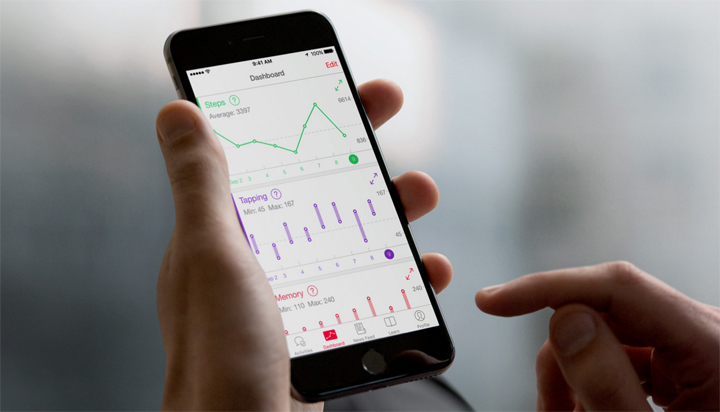CUPERTINO, Calif. – Apple is edging its way a little further into health care with the release of new iPhone apps that patients can use to manage their own medical conditions – from diabetes to pregnancy and even depression.

While there are hundreds of health-related apps on the market, Apple wants to put its stamp on a new ecosystem of treatment programs. Rather than build the apps itself, the tech giant developed a set of software tools and templates, called “CareKit,” that health-care groups and health-tech startups can use to create their own programs.
Apple says it wanted to help developers build easy-to-use apps for patients to record symptoms, get useful information, track their progress and even send reports to a doctor. Experts say the CareKit program could help bring standards to a relatively new and unruly industry, while giving Apple a toehold in the growing health-tech market.
READ MORE: Canadians eager for more virtual, mobile health care solutions
CareKit apps hitting the Apple online store this week include One Drop for diabetics; Start for people taking anti-depression drugs; and two apps from health startup Glow, aimed at women who are pregnant or caring for newborns.
Apple says larger organizations, including the University of Rochester and hospitals at the Texas Medical Center, are working on CareKit apps for people with Parkinson’s disease and patients who’ve undergone heart or lung operations.
READ MORE: 10 health apps recommended by experts
“These mobile tools can help people reach their health goals,” said Thomas Goetz of Iodine, a startup that used CareKit in the latest version of its Start app.
Along with providing information about side-effects to depression medications, the app asks patients to record their symptoms and answer standardized questions to track how they’re doing. Start uses a CareKit feature that lets patients send reports to their doctors; eventually, Goetz said, doctors will be able to respond by adjusting their instructions for medication, diet or exercise.
User privacy, data security still an issue
Data stored on iPhones is encrypted, and Iodine’s app provides cautions to make sure patients understand they’re sending sensitive information to their doctors. Goetz said his company is also developing back-end software for medical offices that will comply with federal confidentiality rules.
But Goetz acknowledged that doctors and insurers “are still trying to make sense of the world of health care apps. They’re trying to understand which ones are valid tools and which aren’t necessarily useful.”
Apple’s software could help validate new apps, he said, by letting developers build on a standardized template from a well-known company whose products are used by large numbers of people.
Apple says it isn’t making money directly from CareKit, which grew from tools the company previously developed for researchers to create apps that collect iPhone users’ data for health studies. But Apple could benefit if the apps gain wide adoption, making the iPhone an even more useful tool for millions of people with medical conditions.
READ MORE: Health and wellness apps available in U.S. top 165,000
“Even if you can’t point to a revenue stream today, being the hub of an ecosystem related to health care could have great value in the future,” said analyst Jeff Cribbs, who studies health technology for the Gartner research firm.
Apple CEO Tim Cook has signalled he believes the iPhone and Apple smartwatch can play a bigger role in health care. But the industry is heavily regulated and Apple has not ventured into making specialized devices that would be subject to federal oversight. Instead, the company leaves it to the developers who use Apple’s software to determine if an individual app meets any health regulations.






Comments